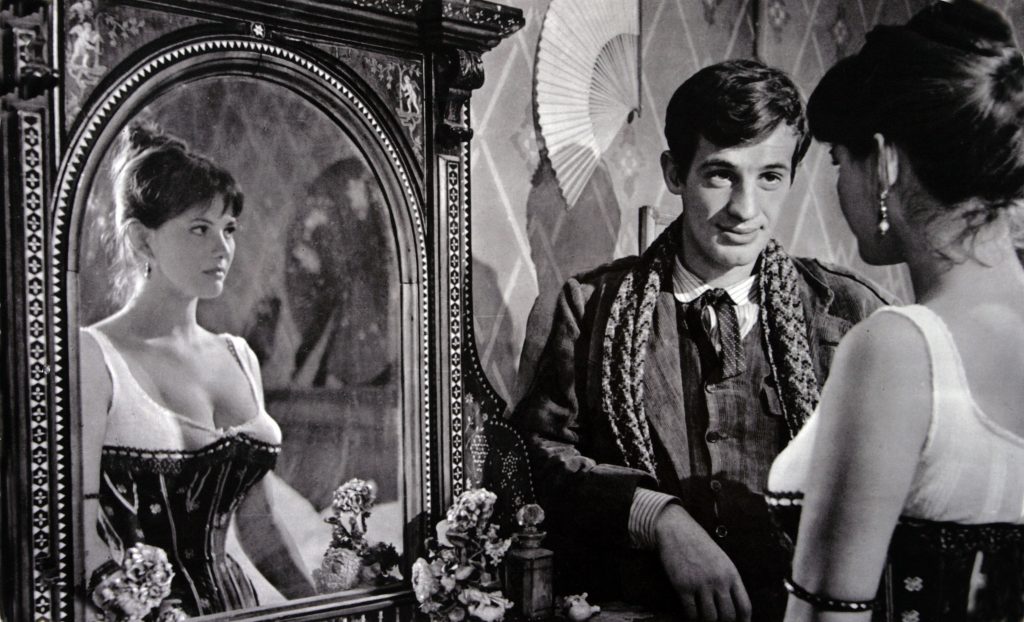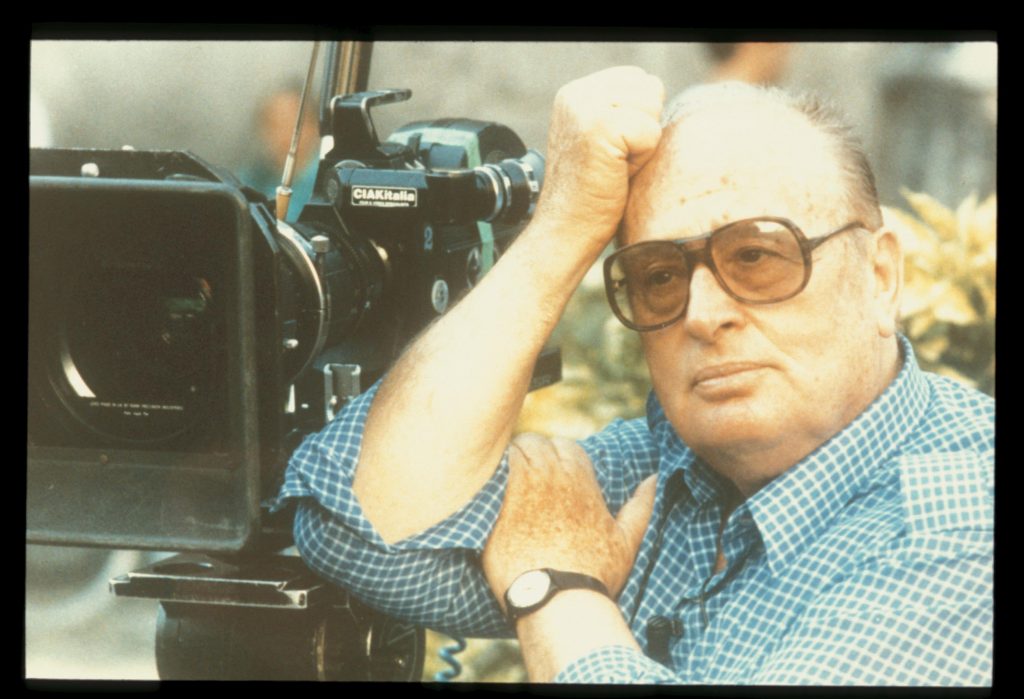Mauro Bolognini is best remembered as a refined creator of elegant literary adaptations, but naturally his profile is more complex and layered. And not only because the lesser outcomes of his career are paradoxically outside the bed of transpositions: let’s think of the choral Young husbandsintimate and melancholy discussion on the myth of male friendship, oa Free, my lovememorable portrait of an irreducible anarchist between fascism and resistance with Claudia Cardinale, one of her favorite actresses (both films not available for legal use on the thousands of platforms in circulation).
Forty titles for the big screen, plus half a dozen works for television and various theatrical experiences between opera and prose: Bolognini was an eccentric director with great sensitivity for staging, a stylist who never gave up on sounding life interior of the characters who lived in its so sought-after containers as to turn out to be sinister environments, even disturbing machines.
Mauro Bolognini (Webphoto)
Pistoiese, was the narrator of a province suspended between smiling acceptance of its horizons and inexorable awareness of limits (The lovers), the first to give a cinematographic form to the words and themes of Pier Paolo Pasolini (Marisa the owl, The good night, The foolish day) and among the few to translate Alberto Moravia without morbidity (Augustine), close to the comedy of manners (the episodes of My lady, The fairies, Witchesthe co-production Arabella) to the adaptations dominated by the conflict between social dialectics and calligraphy (from Boubù to The true story of the lady with the camellias), without forgetting scattered whims (the sessantottino Murder charge for a studentthe soft The venexianathe politician Goodbye Moscow).
Born on June 28, 1922 and died on May 14, 2001, Mauro Bolognini would have turned one hundred years old. Let’s rediscover his cinema with 10 unmissable films, available on digital platforms.
THE LOVERS (1955) on CHILI
Bolognini’s fourth film later We are in the gallery (a type of A Star is Born at the time of the magazine), the swashbuckling adventure The queen’s knights and the formative The vein of goldis a cheerful comedy that looks at Carlo Goldoni at the height of pink neorealism, in a Trastevere Rome full of lively young people and with a lot of confidence in the future.
ARRANGY (1959) on INFINITY
Extraordinary comedy of manners at the crossroads between post-war narrowness and the euphoria of the economic boom, it focuses on the radical social change linked to the closure of brothels, recounting the daring hardships of a family trapped by swindlers and expectations. Crazy cast: Peppino and Totò, Vittorio Caprioli and Franca Valeri …
THE BEAUTIFUL ANTHONY (1960) on PRIME VIDEO and RAKUTEN TV
Vitaliano Brancati reread by Pasolini and Gino Visentini (who move the action from fascism to the present), produced by newcomer Alfredo Bini and played by Marcello Mastroianni in the year of Sweet life: Bolognini’s most famous film, as well as one of the best aging ones, is an essay on how a novel is translated, endowed with painful ambiguity in flawless packaging.
THE VIACCIA (1961) on RAIPLAY and PRIME VIDEO
Morandini considers it the Golden helmet Italian: perhaps time has not been very generous with this superproduction of sensational values (photography by Leonida Barboni, costumes by Piero Tosi, scenes by Flavio Mogherini), but it is difficult not to be seduced or rather overwhelmed by the sense of the end of a damned story and from the beauty of Claudia Cardinale and Jean-Paul Belmondo.

La viaccia (Webphoto)
SENILITY (1962) on INFINITY
Another literary translation that dares to slip the action from the original late nineteenth century to the twenties between artistic avant-gardes and the fascist yoke, did not please the commentators of the time but today it appears irresistible in its sick charm. Maybe Italo Svevo deserved more, maybe the miscasting is too evident, but the twilight atmosphere of melodramatic noir makes it succulent.
CORRUPTION (1963) on RARE VIDEO
One of Bolognini’s most political and desperate films, it is a disturbing little apologue that highlights the dark sides of economic well-being, the imbalances and contradictions of the ruling class. Conflicts between capitalist fathers and intellectual sons, sexual temptations and spiritual vocations, morality versus moralism: dry and sharp, with a notable ending, he had trouble with censorship.
METELLO (1970) on PRIME VIDEO
The peak of the solid and fertile relationship between Bolognini and Vasco Pratolini is a supreme essay in direction: the apparent calligraphy of the meticulous reconstruction of the period as an intellectual space in which to measure the differences and similarities with the present. Decadent postcard that anticipates The working class goes to Heavenwith Massimo Ranieri and a wonderful Ottavia Piccolo.
FACTS OF GOOD PEOPLE (1974) on PRIME VIDEO and CHILI
Reconstruction of the Murri trial, an early twentieth century crime that overwhelmed the Bolognese elite between private vices and public virtues: a procedural drama that focuses on the director’s interest in the dark sides of the bourgeois aristocracy, the depravities hidden under a clean face. Here too the luxury cast: Giancarlo Giannini, Catherine Deneuve, Fernando Rey …
THE FERRAMONTI HERITAGE (1976) on RAIPLAY and PRIME VIDEO
Almost an appendix to the previous film (but in between is the equally perverse For the ancient stairs) but of literary origin. The formal care exalts the triumph of cynicism of social climbers engaged in financial speculation, moral corruption, reckless betrayal. The gold digger Dominique Sanda was imperial, but also Gigi Proietti, Adriana Asti, the patriarch Anthony Quinn were awarded.
GRAN BOLLITO (1977) on INFINITY
More than a bizarre, a real madness: what courage to transform the chilling story of the “Correggio soap maker” (she sliced, boiled and transformed into soap three women between 1939 and 1940) into a grotesque theater, apotheosis of the grand guignol in provincial format. With the possessed Shelley Winters and Max von Sydow, Renato Pozzetto and Alberto Lionello en travesti.
Mauro Bolognini, his films and where to find them – Cinematografo

